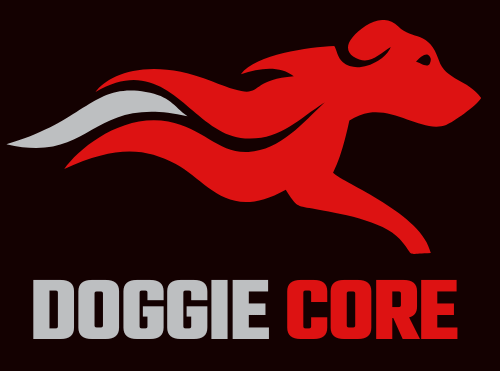Recognizing And Dealing With Common Doodle Dog Health Issues
Are you a proud owner of a Doodle dog? Well, get ready to learn all about recognizing and dealing with common health issues that these adorable fluff balls may face. From allergies to joint problems, this article will provide you with valuable insights and tips on how to keep your furry friend healthy and happy. So, sit back, relax, and let’s jump right into the world of Doodle dog health!
Common Health Issues in Doodle Dogs
Doodle dogs, a popular crossbreed between poodles and other breeds, are known for their adorable appearance, friendly disposition, and intelligence. However, like any other dog breed, doodles are prone to certain health issues. It is important for doodle owners to be aware of these common health problems and to know how to recognize and address them.
1. Allergies
Allergies are a prevalent health issue in doodle dogs. These dogs can develop allergies to various triggers, including food, environmental factors, and certain substances. Common symptoms of allergies in doodles include scratching, itching, redness, and skin irritations. In some cases, allergies can also lead to gastrointestinal issues, such as vomiting and diarrhea. If you notice any of these symptoms in your doodle, it is essential to consult with a veterinarian for proper diagnosis and treatment.
2. Hip Dysplasia
Hip dysplasia is a condition characterized by an improper formation of the hip joint, leading to discomfort and mobility issues. Doodle dogs are at an increased risk of developing hip dysplasia due to the influence of their parent breeds. Signs of hip dysplasia may include difficulty in standing up or jumping, limping, and a reluctance to engage in physical activities. Regular exercise, a balanced diet, and weight management can help alleviate symptoms and minimize the progression of hip dysplasia.
3. Progressive Retinal Atrophy (PRA)
Progressive Retinal Atrophy, also known as PRA, is an inherited condition that affects the retina of the dog’s eye, progressively leading to vision loss and blindness. Doodle dogs are susceptible to this disease due to their genetic makeup. Early signs of PRA may include night blindness, dilated pupils, and difficulty navigating in dim lighting. If you suspect your doodle is experiencing vision problems, it is crucial to consult with a veterinary ophthalmologist who can provide a proper diagnosis and recommend appropriate treatment options.
4. Ear Infections
Ear infections are a common health issue in many dog breeds, including doodles. Due to their floppy ears and dense fur, doodles are prone to moisture buildup and poor air circulation in their ear canals, making them more susceptible to infections. Signs of an ear infection may include frequent scratching or rubbing of the ears, redness, foul odor, discharge, and sensitivity to touch. Regular ear cleaning and proper grooming practices, such as drying the ears thoroughly after bathing, can help prevent ear infections. If an infection does occur, it is important to seek veterinary care for proper treatment.
5. Hypothyroidism
Hypothyroidism is a condition that occurs when the thyroid gland fails to produce enough thyroid hormones, which are responsible for regulating metabolism. Doodle dogs are among the breeds that can be predisposed to hypothyroidism. Common signs of hypothyroidism in doodles include weight gain, lethargy, hair loss, dry skin, and intolerance to cold temperatures. If you notice these symptoms in your doodle, it is essential to consult with a veterinarian for proper diagnosis and to develop a treatment plan, which may include medication and dietary adjustments.
6. Epilepsy
Epilepsy is a neurological disorder that can affect doodle dogs, leading to recurrent seizures. While the exact cause of epilepsy is often unknown, it can be inherited and influenced by genetics. Seizures can vary in severity and duration, and they may be accompanied by unusual behaviors or loss of consciousness. If your doodle experiences a seizure, it is important to seek immediate veterinary attention to ensure proper management and to provide a safe and supportive environment for your pet.
7. Von Willebrand Disease (VWD)
Von Willebrand Disease is a hereditary bleeding disorder that affects the clotting process in dogs. Doodle dogs, especially those with poodle ancestry, can inherit this condition. Signs of VWD may include easy bruising, prolonged bleeding from minor injuries or surgeries, nosebleeds, and blood in stool or urine. If you suspect your doodle may have VWD, it is important to consult with a veterinarian who can perform specific tests to confirm the diagnosis. While there is no cure for VWD, careful management and precautions can help ensure your doodle’s health and well-being.
8. Gastric Dilatation-Volvulus (GDV)
Gastric Dilatation-Volvulus, commonly known as GDV or bloat, is a life-threatening condition that mainly affects larger dog breeds, including some doodles. GDV occurs when the stomach twists, causing bloating and cutting off blood flow. Symptoms may include unproductive retching, distended abdomen, restlessness, and difficulty breathing. GDV requires immediate veterinary intervention, as it can lead to severe complications or even death. Prevention measures, such as feeding multiple smaller meals, avoiding exercise after meals, and using elevated feeding bowls, can help minimize the risk of GDV.
9. Dental Problems
Doodle dogs may be prone to dental issues, such as periodontal disease, tooth decay, and gum infections. Regular dental care, including daily tooth brushing, dental chews, and regular professional cleanings, can help maintain good oral hygiene and prevent these problems. Signs of dental issues include bad breath, inflamed gums, dental tartar, and difficulty eating or chewing. It is important to address dental problems promptly to prevent pain, discomfort, and potential complications in your doodle’s overall health.
10. Obesity
Like many other dog breeds, doodles are prone to obesity if not provided with a balanced diet and regular exercise. Obesity can lead to numerous health issues, including joint problems, heart disease, diabetes, and a decreased lifespan. Monitoring your doodle’s diet, providing appropriate portion sizes, and engaging in regular exercise are essential for maintaining a healthy weight. If your doodle is already overweight, consulting with a veterinarian or a professional dog nutritionist can help develop a suitable weight management plan.

Recognizing and Identifying Health Issues
To effectively address the health issues that doodle dogs may encounter, it is crucial for owners to be able to recognize and identify potential problems early on. By paying attention to certain behavioral and physical changes, and taking preventative measures, owners can ensure the well-being of their beloved pets.
1. Observing Behavioral Changes
Being familiar with your doodle’s typical behavior is key to identifying any potential health issues. Changes in energy levels, appetite, sleep patterns, or unusual behaviors can indicate an underlying problem. Keep an eye out for excessive fatigue, irritability, decreased interest in activities, or changes in sociability. If you notice any significant changes in your doodle’s behavior, it is recommended to consult with a veterinarian for a thorough evaluation.
2. Monitoring Physical Symptoms
Regularly examining your doodle’s body and skin can help detect any physical symptoms indicative of health issues. Look for any unusual lumps, skin lesions, rashes, redness, swelling, or changes in the coat or fur. Monitor your doodle’s eyes, ears, nose, and oral cavity for any discharge, discoloration, or signs of pain. Early detection of physical symptoms can guide you in seeking prompt veterinary attention, leading to better outcomes for your doodle’s health.
3. Regular Vet Check-ups
Scheduled veterinary check-ups are vital in ensuring your doodle’s overall health and well-being. Routine examinations, vaccinations, and screenings can help identify potential health issues at an early stage. Regular check-ups also provide an opportunity for open communication with your veterinarian, allowing you to discuss any concerns or observations regarding your doodle’s health.
4. Genetic Testing
Given that some health issues in doodle dogs are genetically inherited, genetic testing can provide valuable information about potential health risks. Working with a reputable breeder who conducts appropriate genetic testing on parent dogs can help reduce the risk of passing on certain conditions to the offspring. Genetic testing can help identify potential health issues and enable owners to take proactive measures to manage or prevent them.
5. Knowing Breed Characteristics
Familiarize yourself with the specific characteristics and traits of your doodle’s breed mix. Understanding the common health issues associated with the parent breeds can provide insights into potential health risks for your doodle. By being aware of their genetic predispositions, you can take proactive steps to prevent or manage these issues.
6. Understanding Allergy Symptoms
As mentioned earlier, allergies are a common health issue for doodle dogs. Learning to identify the symptoms of allergies, such as excessive itching, redness, skin irritations, and gastrointestinal problems, can help you address these issues promptly. By keeping an eye out for allergic reactions and discussing them with your veterinarian, you can establish an appropriate management plan or make necessary dietary adjustments.
7. Recognizing Joint and Mobility Issues
Doodle dogs, especially those with poodle ancestry, can be prone to joint and mobility issues like hip dysplasia. Being attentive to signs such as difficulty in getting up or walking, limping, or reluctance to engage in physical activities can help you recognize possible concerns. Promptly seeking veterinary advice and considering appropriate treatment options can improve your doodle’s comfort and quality of life.
8. Detecting Vision Problems
Since doodle dogs may be susceptible to progressive retinal atrophy, being able to recognize potential vision problems is crucial. Pay attention to signs like reduced vision in dim lighting, increased clumsiness, dilated pupils, or hesitance in unfamiliar surroundings. Consulting with a veterinary ophthalmologist for proper diagnosis and guidance can help ensure the best possible vision care for your doodle.
9. Identifying Ear Infections
Regularly inspecting and cleaning your doodle’s ears is essential for preventing and identifying ear infections. Look out for signs such as excessive scratching or rubbing of the ears, redness, foul odor, discharge, or sensitivity to touch. If you suspect an ear infection, it is vital to seek veterinary assistance for prompt diagnosis and appropriate treatment.
10. Noting Changes in Appetite and Weight
Monitoring your doodle’s appetite and weight can provide valuable insights into their overall health. Sudden changes in appetite, such as a loss of appetite or excessive hunger, may indicate underlying health issues. Similarly, significant weight gain or loss can be an indication that medical attention is needed. If you notice any significant changes in your doodle’s appetite or weight, it is important to consult with a veterinarian for further evaluation.

Dealing with Doodle Dog Health Issues
If you suspect or have confirmed that your doodle is experiencing a health issue, it is essential to take appropriate measures to address the concern and ensure your dog’s well-being. The following sections outline some ways to manage and treat common health issues in doodle dogs.
1. Allergy Management
In cases of allergies, identifying and avoiding triggers is crucial. If your doodle has food allergies, your veterinarian may recommend an elimination diet to determine the specific ingredients causing the allergic reactions. Environmental allergies may require measures such as minimizing exposure to certain allergens or using appropriate medication. Regular grooming, including frequent brushing and bathing with hypoallergenic shampoos, can also help manage allergies in doodles.
2. Treatment and Exercise for Hip Dysplasia
Treatment options for hip dysplasia may vary depending on the severity of the condition. Non-surgical approaches typically involve weight management, controlled exercise, and physical therapy to strengthen muscles supporting the hips. In more severe cases, surgical interventions may be necessary. Consult with a veterinarian or a veterinary orthopedic specialist to determine the most suitable treatment plan for your doodle.
3. Managing Progressive Retinal Atrophy
While there is no cure for progressive retinal atrophy, certain measures can help slow down the progression of the disease and provide support for your doodle’s vision. Your veterinarian or a veterinary ophthalmologist may recommend dietary supplements, such as antioxidants, to support retinal health. Creating a safe and familiar environment for your doodle, especially in low-light conditions, can also help them navigate their surroundings more easily.
4. Preventing and Treating Ear Infections
Prevention of ear infections involves regular ear cleaning with veterinarian-approved cleansers and ensuring proper drying after bathing or swimming. If an infection does occur, your veterinarian may prescribe medication, such as ear drops or oral antibiotics, to treat the infection. Follow your veterinarian’s instructions for administration and complete the full course of treatment to effectively eliminate the infection.
5. Treating and Monitoring Hypothyroidism
Hypothyroidism is typically managed through hormone replacement therapy. Your veterinarian will prescribe synthetic thyroid hormone supplements to help normalize hormone levels. Regular monitoring and blood tests will be necessary to ensure the correct dosage and to track your doodle’s response to treatment. Additionally, dietary modifications, such as a high-quality and well-balanced diet, may be recommended to support thyroid function.
6. Handling Epilepsy in Doodle Dogs
Epilepsy cannot be cured, but it can typically be managed with medication and lifestyle adjustments. Your veterinarian will likely prescribe anticonvulsant medication to control the frequency and severity of seizures. It is important to strictly adhere to the medication schedule and to monitor your doodle closely for any side effects. Creating a safe and calm environment for your doodle can also help minimize triggers that may contribute to seizures.
7. Managing Von Willebrand Disease
Von Willebrand Disease generally requires careful management and precautions to minimize bleeding risks. In the event of an injury or surgical procedure, it is important to inform your veterinarian about your doodle’s condition. Your veterinarian may recommend specialized treatment options or guidelines to ensure proper blood clotting and prevent excessive bleeding. It is crucial to establish a good relationship with a veterinarian who is experienced in handling bleeding disorders.
8. Preventing Gastric Dilatation-Volvulus
Prevention of gastric dilatation-volvulus, or GDV, involves measures such as feeding multiple smaller meals throughout the day instead of one large meal, using slow-feed bowls or puzzle feeders to slow down eating, and avoiding exercise or vigorous activity immediately after meals. If your doodle is considered at higher risk for GDV, your veterinarian may discuss surgical options, such as gastropexy, to prevent the twisting of the stomach in the future.
9. Dental Care and Prevention
Good dental hygiene is crucial for keeping your doodle’s teeth and gums healthy. Daily tooth brushing with canine-specific toothpaste and regular dental cleanings under veterinary supervision can help prevent dental problems. Veterinarian-approved dental chews, toys, and treats designed to promote dental health can also aid in preventing issues like periodontal disease, tooth decay, and gum infections. Regular dental examinations are essential to detect any early signs of dental problems.
10. Weight Management and Obesity Prevention
Maintaining a healthy weight is essential for your doodle’s overall health. Your veterinarian can help determine the ideal weight range for your doodle and recommend an appropriate diet and portion sizes. Regular exercise, such as daily walks or play sessions, is also important in managing your doodle’s weight and promoting their overall well-being. Avoid overfeeding and limit calorie-dense treats to prevent excessive weight gain and obesity.
In conclusion, while doodle dogs are generally healthy and happy pets, they can be susceptible to certain health issues. By recognizing the signs and symptoms of common health problems, consulting with a veterinarian, and taking appropriate measures, you can ensure your doodle’s well-being and provide them with a long and fulfilling life. Regular veterinary check-ups, proactive care, and a loving environment will help your doodle thrive and bring joy to your life for years to come.













